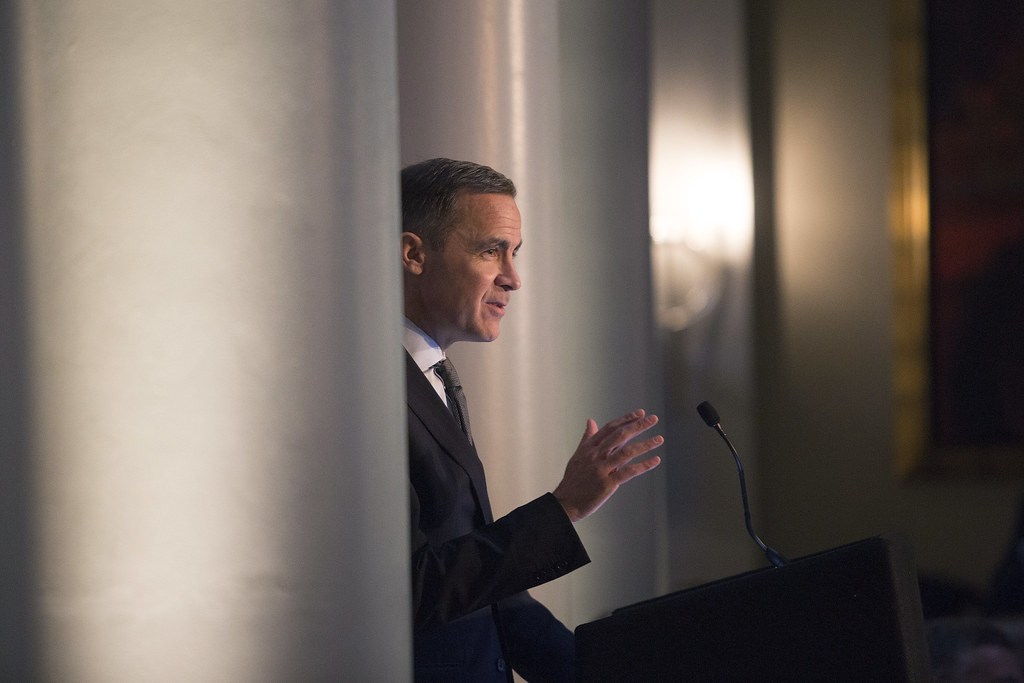Former Bank of England Governor Mark Carney leads task force to scale global market for CO2 offsets
Figures from BP, Shell, Unilever, Nestlé and BlackRock are among members of the new Taskforce on Scaling Voluntary Carbon Markets. Read More

Mark Carney
A host of top figures from business, finance and academia led by former Bank of England Governor Mark Carney have announced a global task force to accelerate the development of voluntary carbon markets across the private sector, ahead of anticipated surge in demand for CO2 offsets as the net zero transition gathers pace.
Launched last week, the Taskforce on Scaling Voluntary Carbon Markets comprises more than 40 leading figures from six continents with backgrounds spanning the CO2 market value chain, including financial sector experts, market infrastructure providers and buyers and suppliers of carbon offsets.
Figures from major global corporates such as Shell, BP, RWE, Tata Steel, Unilever, UBS, Siemens, Nestlé, Etihad, BNP Paribas, BlackRock, Bank of America and Maersk have joined the task force, alongside carbon market specialists such as ClimateCare, Verra and Natural Capital Partners.
It comes as increasing numbers of companies are announcing net zero pledges, with many looking to offset some emissions in the short to medium term by funding projects such as forestry protection or peatland restoration projects that can absorb or avoid CO2. Carbon markets enable buyers to purchase credits that support such emissions-reducing projects, widely seen as a means of contributing to a smaller global emissions footprint overall.
But in order to meet growing demand for offsets, current private sector carbon markets would need to grow by at least fifteenfold on today’s levels, potentially reaching up to 160 times bigger, Carney warned.
“The financial sector can use their expertise in building market infrastructure to create a carbon offset market which connects this demand with supply,” said Carney, recently appointed as the U.N.’s Special Envoy for Climate Action and Finance Advisor to U.K. Prime Minister Boris Johnson for COP26. “I am pleased that the experts from across the financial system as well as buyers and sellers of offsets will come together to create a blueprint for such a market. This collaboration could make an enormous contribution to supporting the whole economy transition required to achieve the climate goals that our society demands and future generations deserve.”
The task force, chaired by Standard Chartered CEO Bill Winters, will aim to assess and then expand voluntary carbon markets around the world, in the process identifying key challenges, building consensus and eventually presenting a blueprint of actionable guidelines for businesses, the group said.
The Institute of International Finance (IIF) is sponsoring the task force, with financial consultant McKinsey & Company providing advisory support and Annette Nazareth, a partner at law firm Davis Polk and former commissioner of the U.S. Securities and Exchange Commission, serving as operational lead.
The move comes at a critical time for the world’s carbon markets. On the one hand, the sector is tipped to grow rapidly as more companies make net zero emissions pledges and look to purchase credible offsets to tackle emissions that cannot be easily reduced at source. Meanwhile, the development of the new international aviation offset scheme CORSIA and the tightening of emissions caps in established cap-and-trade schemes such as the EU emissions trading scheme are expected to provide a further boost to the global carbon markets.
At the same time, some campaigners remain fiercely critical of the offset market, questioning the credibility of many emissions reduction projects and arguing that offsets can distract from efforts to cut emissions at source. In addition, the rules governing carbon trading remain a critical point of disagreement for the long-running U.N. climate talks, meant to result in a finalization of the Paris Agreement rulebook at next year’s COP26 Climate Summit in Glasgow.
As such, an effective international carbon market remains a crucial missing component in delivering international climate goals set out in the Paris Agreement, Winters acknowledged.
“By scaling voluntary carbon markets and allowing a global price for carbon to emerge, companies will have the right tools and incentives to reduce emissions at least cost,” he said. “I look forward to leading this group of highly talented market experts to help the private sector fully play its part in decarbonizing the global economy through effective and efficient voluntary carbon markets.”













